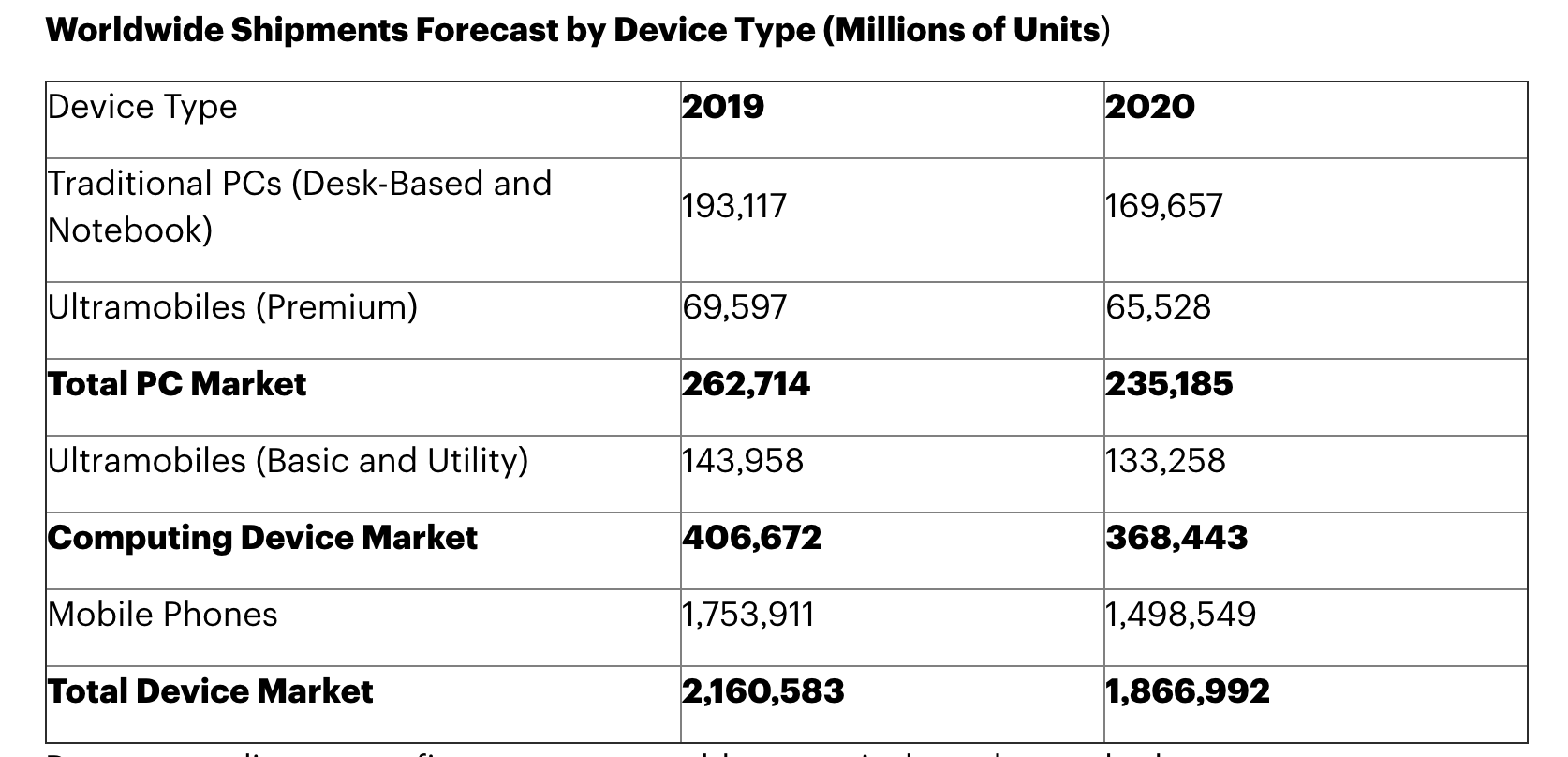New numbers from Gartner show a sizable — if not unexpected — decline in device shipments for 2020. According to the analyst firm, the category (including phones, tablets and PCs) is currently on track to decline 13.6% for the year.
COVID-19 is, naturally, largely to blame here. The virus has permeated virtually every sector of society, and hardware is certainly not immune. Phones are projected to take the biggest hit, down 14.6% from 2019. That list includes both dumb and smartphones, the latter of which now comprises most handset purchases. Smartphones as a category are down 13.7% year over year.

The smartphone market has been on a slide for recent years. But 2020 was going to be the year smartphone makers turned things around (for a little while, at least), thanks to the arrival of 5G. Like so many other things in this world, however, COVID-19 has put a damper on those figures, with the technology only expected to represent 11% of phone shipments for the year.
Interestingly, PC shipments weren’t impacted as strongly as might have been expect. The decline is still sizable at 10.5%, but a push to implement work from home models for many employees has helped lessen the slide. In particular, laptops, Chromebooks and tablets appear to be the least impacted of the bunch.
from TechCrunch https://ift.tt/2ZErCRW
via IFTTT

Comments
Post a Comment